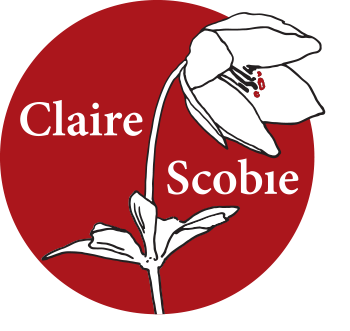
20 Mar How to Navigate the Three Phases of Writing
I often wonder why so few people actually finish their writing projects. Or, why other people have great plans but don’t act on them. Any creative project has 3 distinct phases and each one requires you to harness a particular energy within yourself.
Stage #1 – Embarking on the journey
When you begin a writing project (or any artistic endeavour), you are usually full of hope. Starting energy — let’s face it — is the most fun. It’s when you have all the big ideas and mad-hare schemes. Anything is possible. But there are things that can derail you.
Tools and tricks that help when starting a project:
- A free mind. Your inner critic is not welcome here! This is the time to experiment and throw the net wide. It’s not the time to worry about the outcome. If you’re doing fiction, you’ll be wanting to try different point of views. If it’s non-fiction, play with voice and style.
- Stay with the big picture. When you start, you need butcher’s paper, post-it notes and texter pens. I encourage you to do mind-maps to plan. Try to keep the 40,000-ft view of the project as long as possible to give you perspective and see unexpected connections.
- Keep it light. The energy at this time is spring or early summer energy. You want to harness that freshness in yourself and reflect that on the page. Try different writing spaces to shake it up. Go to the park, write with a friend, have a picnic and write there too.
- Have conversations. If you are a writer who likes to share your ideas, then this is the time to do it. Bounce your ideas around, ask for input before anything is fixed.
- Create a research system. If you are embarking on a big writing project (i.e a book), this is also when you need to be practical. Create a physical filing cabinet or file for clippings and a corresponding digital file. Or just use Scrivener as that will hold everything in one project.
- Capture ideas. You need to seize hold of them as they come, even in the shower.
- Do a plan or write a synopsis. Get your ideas down in some sort or structure so you can refer to them later.
Stage #2 – Ploughing through the middle
When writing an article, there’s a phase known as the ‘slough of despond’. It’s the gritty middle section when you are struggling to find a way through an article, an essay or a report. It nearly always happens but the more you write in a particular form, the more you trust the process. Of course, with a longer work, that phase drags on much longer — months, sometimes years — but it isn’t constant.
With The Pagoda Tree, it felt like some days I was blindfolded in a house with many corridors and rooms, stairs up, down and sideways. Each day, new doors opened and others closed. There were so many options and it was hard navigating the way through. Yet with my current novel, revising the middle section has been long and hard, but it hasn’t been exhausting. I’ve patiently chipped away. I know I’ll get there. This time I have done a lot more planning and that has really helped.
So, what else helps during the middle phase?
- Accountability. This is where a writing buddy or mentor can be the difference between success and failure. They are there to encourage, cajole and give the odd swift kick up the proverbial.
- Self-belief. You need a hefty dose of this during the middle section. You may have lost that youthful optimism you had at the beginning, now it’s about digging in and working through your fears, as well as keeping up the word count.
- Discipline. I don’t mean to sound so serious but you know that 10,000-hour-rule… Practice doesn’t make perfect but it helps your creative muscles get stronger.
- A plan. You might have done an outline at the start or maybe you brainstormed your ideas. Now you need something more concrete. For a novel, a synopsis helps. Even though I’ve written into the void, I reckon having a plan works better and it doesn’t curb the creative process. In fact it lets you breathe into it.
- External inspiration. This is the time to explore other art forms to simulate your creativity. Go to an art gallery, watch movies with similar themes to your stories, look at paintings or photographs, read scripts. See your book as a work of art or imagine the opening scene on a big screen.
- Personal deadlines. I always like a carrot and stick approach. I’ll give myself a deadline to finish a section, and I’ll give myself a little reward. Or sometimes, a really big reward!
- Be open to the magic. I’ve talked before about Elizabeth Gilbert before and having done this stuff for a while, I utterly believe there is something inherently mystical about any deep artistic pursuit. We are creating works out of the ether, out of our imagination, from our souls, from memories we didn’t even know we had. We are using 26 letters and generating stories that can last the test of time. So, let yourself acknowledge and appreciate what is inside you— and do what you need to bring it into the light.
Stage #3 – Climbing to the top
Over my many years as a writing tutor and mentor, I see a regular pattern. Writers get two-thirds of the way, sometimes they are ninety percent there, and they don’t finish. They can’t seem to harness that completion energy that you need to get a project over the line.
Often, it’s got nothing to do with the project. It’s a complex mixture of self-doubt, self-sabotage, a rampant inner critic or a combination of them all. Occasionally, it’s because life does get in the way or the person decides that the project is no longer fulfilling them. Not often. (And by the way, if that happens to you, and you decide you’ve given a book your best shot and it’s time to move on, honour that decision… and genuinely move on.)
Right now, I am grabbing on to every bit of finishing energy I can find. This time my novel is just one of several other projects I have on the go, whereas previously I have just devoted myself to a book 100%. While it is challenging to do it like this, I reckon it’s possible because I’ve built up a solid momentum and I know how to prepare for each phase.
To finish a project you need:
- Support. Not just from your writing buddy, from your loved ones, your friends, cheering you on.
- A deadline. Earlier you created personal deadlines. Now, having an external deadline is super helpful.
- A writing residency or a weekend away in a cabin. I’ve talked about this before and at this stage, it’s crucial. I’ve managed to get 6 days at Bundanon Trust so I will be having my head down over the next week. I’ll work all night if I need to. When pulling together a book, immersion helps brings all the disparate thoughts and ideas together.
- A holiday (big carrot)). The only way I finished my doctorate was to book a trip to India. My husband laid down the law. I had to finish it before we went. I drove out to the university and submitted it the day before we flew. I packed. I boarded the plane. I collapsed in a heap on a beach in Goa for a week.
- Excitement. Finishing energy doesn’t have the same sweet buzz that you experience at the start but it has its own propulsion. It’s like you can see the end in sight, you are anxious to get there, you are tired, but you want to know what lies across the next horizon.
- A healthy regime. In fact, you need this throughout but at the end, take extra vitamins, go to the gym more, do juices. Squeeze every drop out of other areas in your life so you can complete the project.
- Have fun. Yup, even now. Even when you are thinking you’re sick of your story or your project. Enjoy it. That’s why we do it, right?
So, how do you complete your creative projects?
